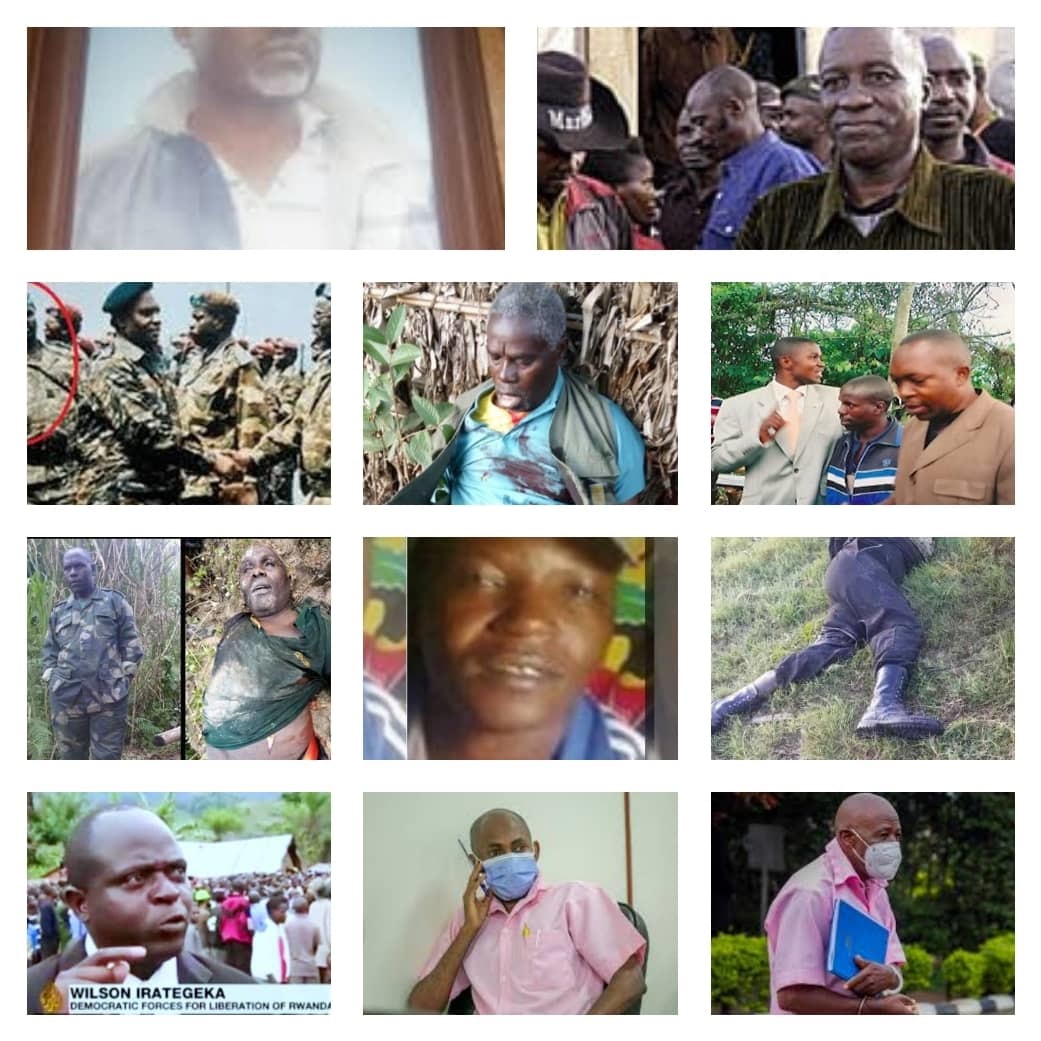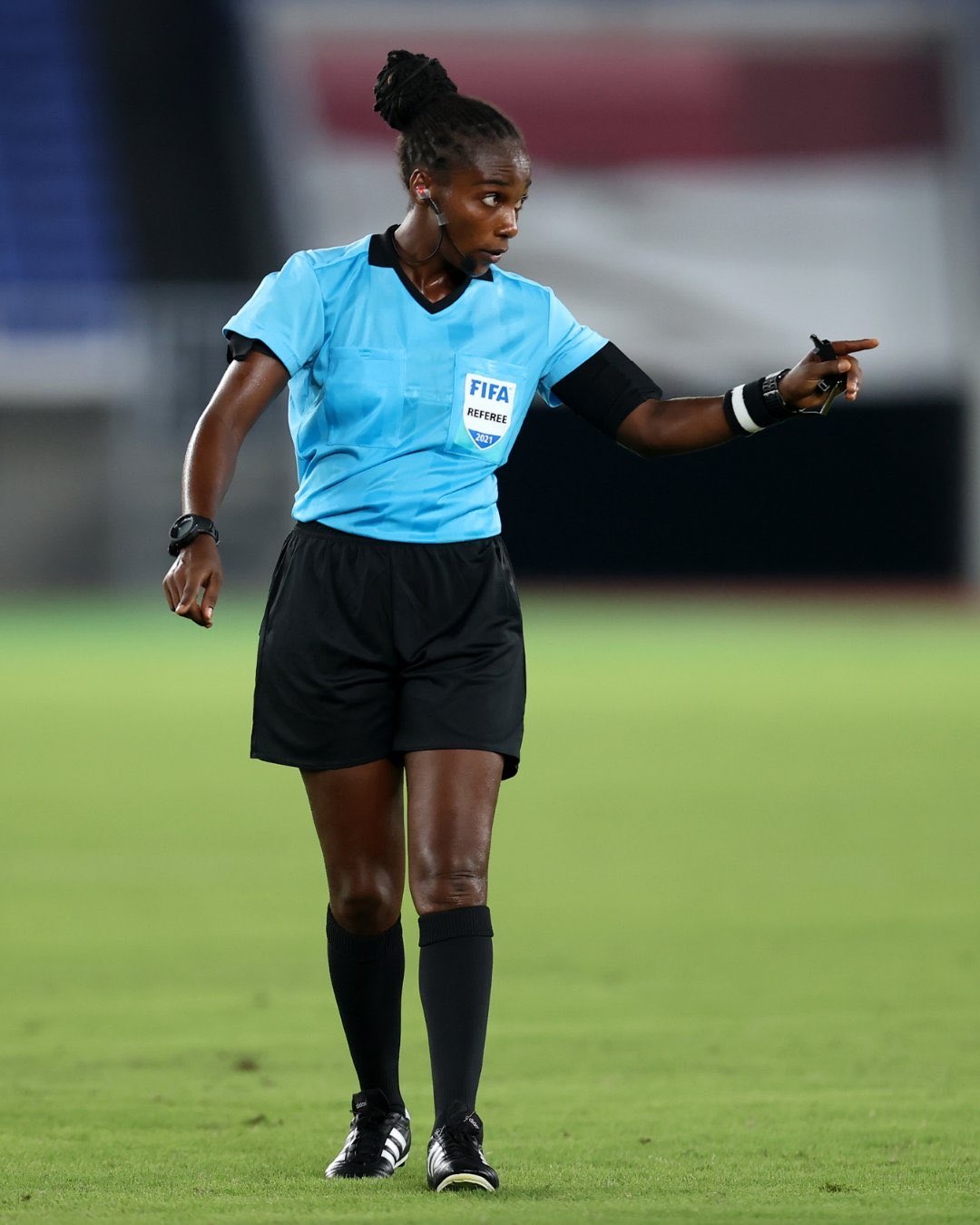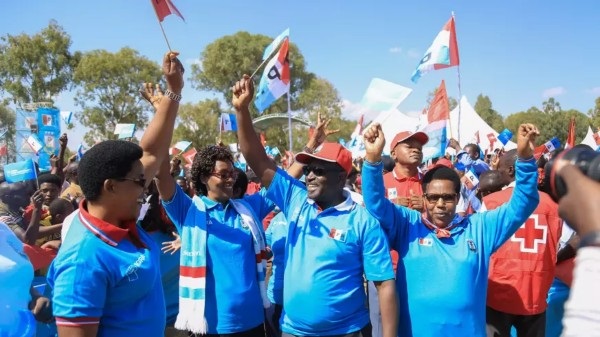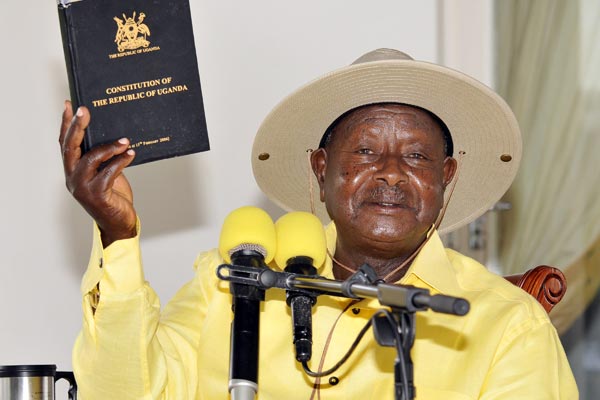Regional
Lt. Col. Muvunyi, the butcher of Butare's role in exterminating the Tutsi
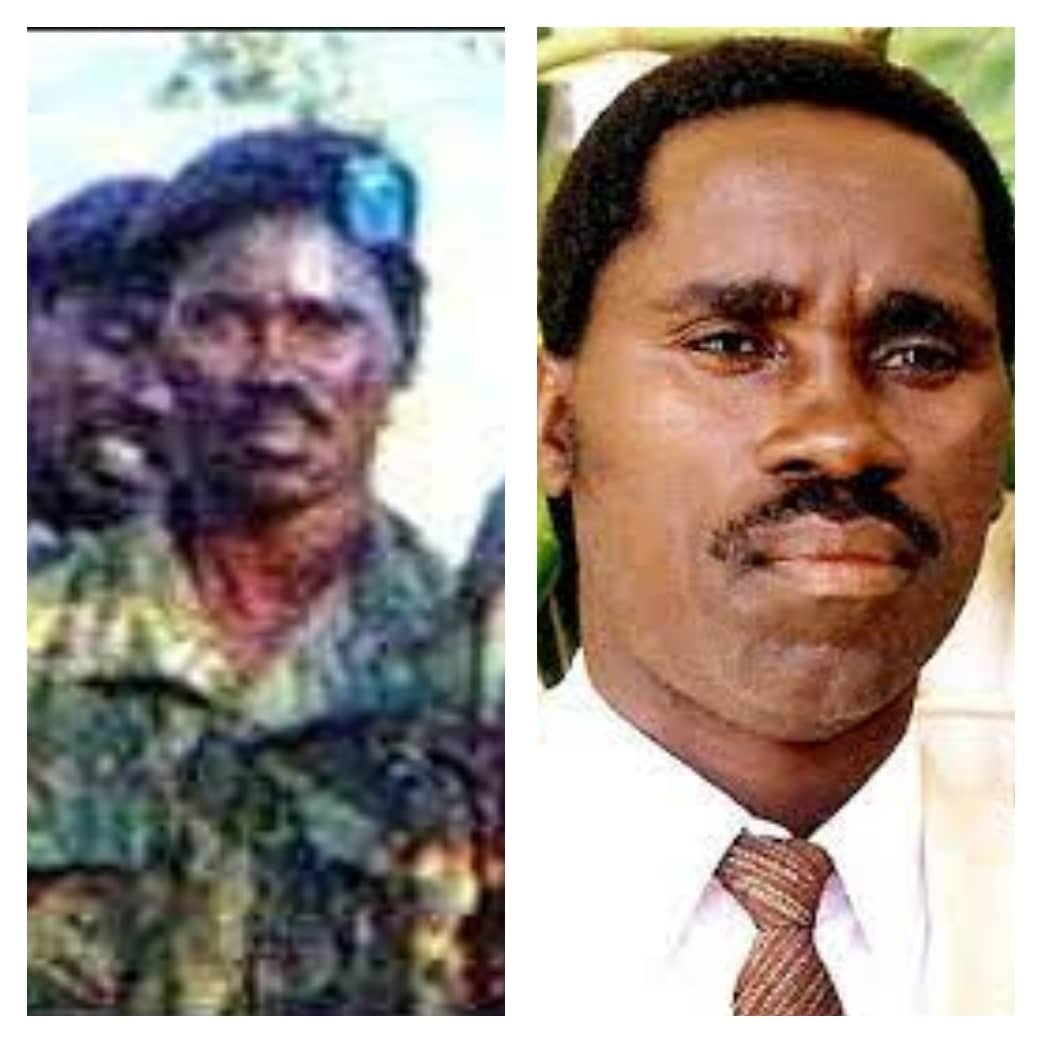
End
last year, the government of Niger notified eight Rwandans about their
expulsion for "diplomatic reasons", a month after they were welcomed
in the capital, Niamey.
The
latter are former key figures of the regime which executed the 1994 genocide
against the Tutsi in Rwanda. They were all tried by the ICTR and later
acquitted, or released, after serving their sentences in whole or in part. They
are hardcore unrepentant genocidaires who, given chance, would not hesitate to
kill again.
They
are now in limbo in Niger waiting for a decision on their fate.
One
of them, Lt. Col. Tharcisse Muvunyi, who is considered as the butcher of Butare,
is the highlight of this article because of his heinous genocide ideology and
crimes.
This
former ex-FAR officer was initially
sentenced to 25 years in prison by the ICTR, which it later reduced to 15
years.
According
to various witnesses accounts, Muvuyi, who was the commander of ESO (Ecole des
Sous-officers – Non-Commissioned Officers) in Butare in, in southern Rwanda,
masterminded the mass-killings of the Tutsi in that prefecture and beyond.
As
ESO commander, he oversaw operations by the Rwandese Armed Forces (FAR) in the
préfectures of Butare and Gikongoro, in southern Rwanda. It is said that in the
aftermath of the assassination of president Juvenal Habyarimana, on April 6,
1994, Muvunyi had the final say in
decisions about security matters.
He subsequently chose to fully throw his
support behind the interim government’s genocide plan.
In
Butare alone, more than 100,000 people were murdered as a direct consequence of
Muvunyi’s actions.
Mass
graves uncovered in Butare revealed tens
of thousands of corpses. At one massacre site alone, there were 65,000. The
bodies of other victims are yet to be found. Muvunyi did nothing to protect
people. Instead, day and night, he encouraged the killings.
According
to African Rights, a London-based human rights watchdog which investigated the
role of Muvunyi in the genocide, as ESO commander, he had at his disposal a
loyal, well-trained fighting force which implemented his orders and
communicated them to others.
He
was known to the local people as “the commander of the genocide” in Butare.
African Rights indicated that before the killings began in Butare, Muvunyi requested for men and arms from Kigali, as reinforcements. On the evening of April 19, 1994, he sent local officials to welcome a planeload of around 800 soldiers. The plane made two flights and brought weapons, equipment, and ammunition.
Muvunyi
is accused of having gone to the neighbouring Gikongoro prefecture to bring
back militiamen. On April 20, that year, Muvunyi held a “security” meeting at
ESO, making clear his belief that the people of Butare had been “soft on the
Tutsi” and that they should join in the genocide that was taking place
elsewhere in the country.
From
that day on, soldiers began killing in Butare town, rounding up the Tutsi at
roadblocks and seeking out well-known Tutsi intellectuals and businesspeople.
The town became a massacre zone, with soldiers using guns and grenades to kill
anyone they identified as Tutsi.
The
ESO was quickly established as a command centre for the genocide. Muvunyi
authorised the distribution of arms and ammunition to local government
officials who were having difficulty in eliminating the Tutsi population in
their areas and sent in his soldiers to lead the slaughter.
Muvunyi
also received requests for assistance from officials seeking to protect the Tutsi,
but these were turned down. Several people were brought to the army base and
detained there or at Ngoma police station. Most of them were murdered, but a
few survived and have given accounts of their experiences.
According
to one man who was arrested by soldiers and taken to ESO and witnessed
Muvunyi’s influence at close hand, “Muvunyi had the power of life and death over
the Tutsi. He gave the orders.”
Muvunyi
played a role in the massacres of Tutsi students at the National University of
Rwanda in Butare. Any Tutsi who was on the university campus from April 19 were
in grave danger. ESO soldiers had sealed it off with roadblocks.
Extremist students helped the soldiers to
search for the Tutsi and to beat and torture them. Then soldiers took them to
the forest below the university, near the ESO barracks, and shot them dead.
Muvunyi deployed a contingent of his soldiers to guard the University Hospital. Their orders included keeping close watch on all patients, many of them being wounded Tutsi, and the refugees who came hoping to find safety at the hospital.
By night, they selected Tutsi staff and patients to kill. When there were only a handful of the Tutsi left, they declared that the hospital would only treat wounded government soldiers.
In Matyazo sector, Ngoma commune, the Tutsi gathered at the health centre and primary school and the local councillor tried to protect them. But on the evening of April 20, an ESO corporal brought orders from Muvunyi. According to this counsellor, the letter he was given was signed by Muvunyi. He was ordered to hand over all the Tutsi and warned that if he resisted, he would be killed with them.
It is said that Muvunyi’s soldiers kept up a barrage of gunfire all that night and they continued the killings for three days until no Tutsi was left alive in Matyazo.
African Rights reported that on April 20, Muvunyi instructed the Tutsi of Tumba sector in Ngoma to go to Kabakobwa hill. There were around 8,000 of them there when, on April 22, about 30 heavily armed gendarmes launched an attack along with interahamwe, civilians and communal police officers.
The
killers shot and threw grenades at the refugees for hours. Most of them were
killed that day, but in the days that followed, Muvunyi made sure there would be no survivors.
A
communal police officer who was serving as a bodyguard to the bourgmestre, a
key accomplice of Muvunyi’s, was there when Muvunyi visited Kabakobwa.
He claims that when they came across some women and children who had survived the massacre, Muvunyi called the interahamwe to separate the boys from the girls and women, then said: “All the boys must die, then you can each take a woman or a young girl to rape. We will kill them afterwards.”
Muvunyi made a particular effort to ensure that certain Tutsi did not survive. He singled out the novices at the Benedictine monastery at Gihindamuyaga in commune Mbazi. On April 22 he went to the commune with three of his own soldiers and enlisted the help of an interahamwe leader, Warrant Officer Emmanuel Rekeraho.
The latter admitted that he took two Tutsi clergymen from the monastery by force, on Muvunyi’s orders. They were killed the same day. Rekeraho also tells how Muvunyi patrolled around Sovu in Huye commune while interahamwe, soldiers and other civilian murderers massacred the Tutsi who had sought refuge at the health centre of the Sovu convent. The arms and ammunition for the killings were also provided by ESO.
The
killings orchestrated by Muvunyi extended beyond the town of Butare.
Soldiers from ESO and Camp Ngoma were sent out to rural areas in army vehicles to begin massacring the Tutsi who had gathered in their thousands in public buildings, on hills and in churches.
On April 19, ESO soldiers arrived in a minibus to take part in the slaughter of the Tutsi at the commune office and school in Kigembe commune. In Ntyazo commune, there were so many Tutsi that the local killers had to ask Muvunyi for help. According to a confessed leader of the massacre, Mathieu Ndahimana, they received a rapid response: “Lt. Col. Muvunyi, sent some gendarmes in a blue van, as well as all the ammunition we needed. More than 6,000 Tutsi died that day.”
In
Runyinya commune, on April 21, soldiers from Camp Ngoma exhausted their
ammunition on a “sea of people.”
The massacre, which took place at the Catholic Parish of Karama, claimed the lives of more than 65,000 people, as the corpses which were discovered later prove. Muvunyi made no effort to stop the killing in Karama. Nor did he give any support to the Tutsi in commune Ndora where 26,000 bodies were found on the hills there after the genocide. These included the victims of a massacre on April 24, 1994. ESO soldiers again participated in the killing. Yet, the day before the massacres, when the burgomaster of Ndora had gone to ESO to ask Muvunyi to send troops to keep the peace, he was told: “I can’t spare you a single soldier.”
The
bourgmestre of Mbazi commune claimed that he also too tried to get Muvunyi to provide
security for the Tutsi who were sheltering in a local stadium, but he was
ignored. Warrant Officer Gatwaza from Camp Ngoma was at the forefront of the
killers on April 25.
Soldiers also took the lead in a massacre on April 27 in Muyaga commune and April 28 in Mugusa commune. Muvunyi made no effort to prevent the violence on any of these occasions and the strict command structure of the military makes it certain that at a minimum he condoned their actions.
There
were about 1,300 refugees at the Groupe Scolaire, a Catholic secondary school
in Butare town. First the interahamwe and civilians sought to abduct about 100
refugees but were dissuaded by bribes.
Then an ESO soldier, Modeste Gatsinzi, accused Brother Célestin Ngendahimana, the headmaster, of harbouring RPF rebels. Ngendahimana telephoned Muvunyi to ask for protection and was promised help. The next day, April 29, ESO soldiers led by Gatsinzi arrived to carry out the massacre of Tutsi.
On April 30, soldiers from Camp Ngoma massacred refugees at the Parish of Ngoma. Here again, Muvunyi offered no assistance to the victims. But that same day he intervened to ensure the deaths of the children who were being looked after by the nuns at the Benebikira convent in Buye. Soldiers came to the convent with a search warrant which the nuns say was signed by Muvunyi. They loaded the Tutsi, including the children, on lorries and drove them away to be killed.
In May and June, Muvunyi called upon civilians
to finish off the genocide and to join
the fight against the RPA rebels, which the government army was losing.
His
speech at the end of May in Nyaruhengeri was typical. A local councillor
recalled that Muvunyi called upon people to “exterminate all the accomplices,
and all the Tutsi women and children who had been hidden.”
He also warned that “any Hutu who hides a
Tutsi will be killed with his entire family.”
Muvunyi
visited several rural communes of Butare to encourage civilians to search for
and kill all remaining Tutsi. He set up programmes to give civilians military training
and handed out guns and grenades, which the killers used against ordinary
Tutsi, as well as against the rebels, until the government forces were defeated
in early July 1994.
Muvunyi,
like his colleagues stranded in Niger, are posing as ordinary folks.
But
they are resolute genocidaires, including Captain Innocent Sagahutu who was
accused of murdering former interim Prime Minister Agathe Uwilingiyimana. Many
of these killers still harbour ideas of joining an armed struggle to topple the
current government and to finish off the genocide.


